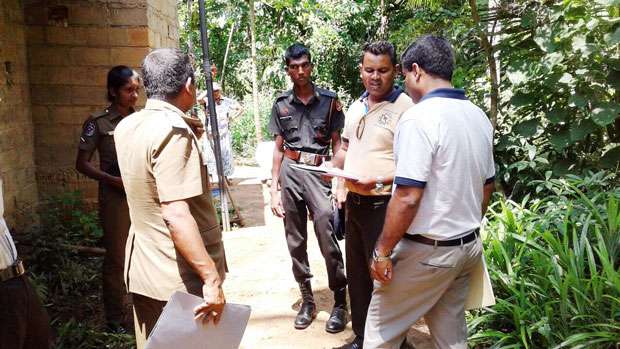Reply To:
Name - Reply Comment
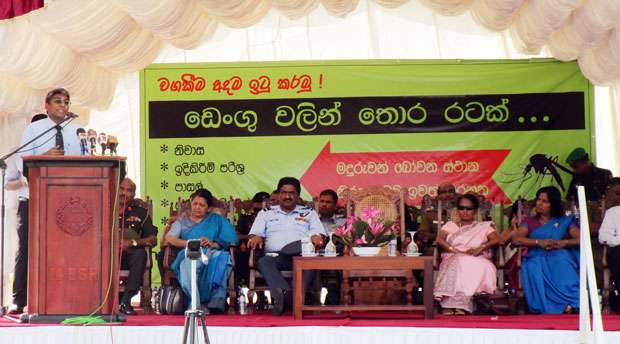
 The dengue pandemic is once again trying to penetrate our nation. However, ‘The National Dengue Prevention Week’ campaign which commenced on September 26 is doing its utmost to eradicate and prevent the virus in Sri Lanka. The dengue prevention campaign is carried out jointly by the CMC, Health Ministry, Special Presidential Task Force, the Environment Police and the Tri-Forces.
The dengue pandemic is once again trying to penetrate our nation. However, ‘The National Dengue Prevention Week’ campaign which commenced on September 26 is doing its utmost to eradicate and prevent the virus in Sri Lanka. The dengue prevention campaign is carried out jointly by the CMC, Health Ministry, Special Presidential Task Force, the Environment Police and the Tri-Forces.
Consultant Community Physician of the National Dengue Control Unit, Dr. Preshila Samaraweera, spoke about the dengue prevention week, and the programmes which are conducted throughout the week, “We conduct two national dengue control weeks every year. Usually it is conducted just before the monsoon period. When we see the pattern of dengue of patients throughout the year, there is a seasonal peak from May to July and October to January. The seasonal peak typically coincides with the South Western monsoon and the North Eastern monsoon.
We conduct our sessions in various health divisions in our country which are called MOH areas (medical officer of health division). We have 355 MOHs in Sri Lanka. We categorize those MOH areas into three considering the density and probability of dengue in that region. The categories are: priority high risk, high risk and low risk. We have had 50 priority high risk MOH areas and 125 high risk areas. The other areas are low risk. During the week we conduct programmes in the priority high risk areas on all 7 days, and 5 days for the high risk areas. During this week we get the support from the tri-forces and the police to conduct the sessions. Such personnel are allocated into teams of three. Further within the MOH areas, we select high risk grama niladari divisions. Usually a grama niladari division consists of 500-700 houses. Each team is responsible for getting the cleaning of potential breeding cleared by respective households. The teams must visit and inspect every house, institute, school, constructive site hence any potential breeding places. Post inspection they ask people to remove unwanted water holding containers that promote breeding. The teams also educate the people of the area and help them identify breeding places. The respective PHI (public health officer) will inform the Grama niladari and religious leaders in order to have shramadanas to clean the areas.”
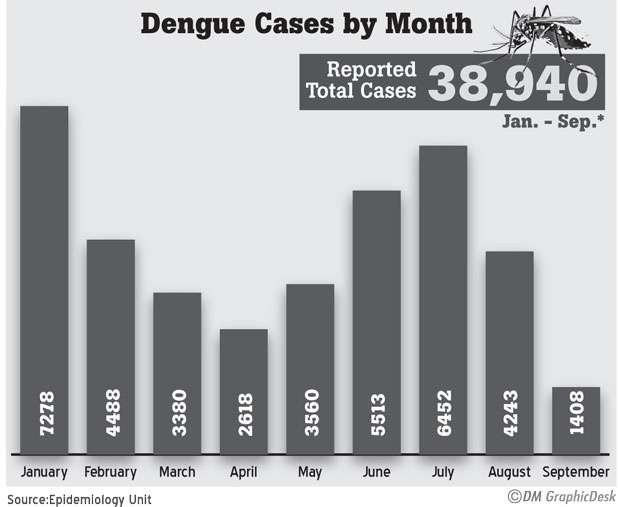
We conduct our sessions in various health divisions in our country which are called MOH areas (medical officer of health division). We have 355 MOHs in Sri Lanka
She noted that on September 28 that they have selected schools to be inspected. The education ministry has issued a circular to inspect and have a shramadana campaign in all the schools of the country. But the priority high risk area schools are inspected and cleaned with more attentiveness.
She elaborated on the status of dengue in our country in contrast to the preceding years, she said, “dengue has reduced significantly, from
150,000 (January- September 2017) to 38000 cases this year ( January- September 2018).
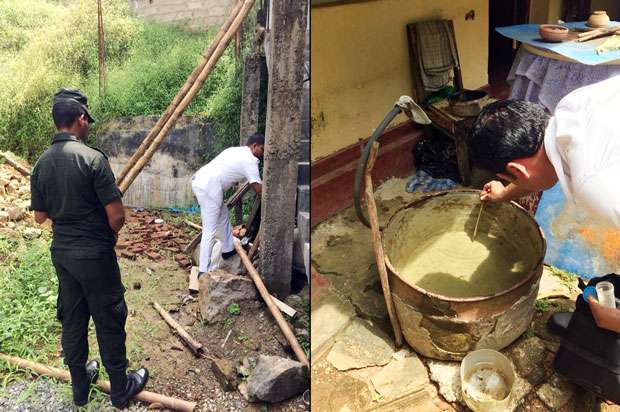
Many factors have contributed to this reduction. When there is a large outbreak, the trend is normally that the following years will have a reduction in cases, because many people got the disease previous year. Every 5- 6 years we have a cyclical outbreak, due to zero type change. This is because the dengue virus has 4 types. For instance when we get an infection from the type 1 virus, we would not get the type 1 virus again. But, if a person, who has already contracted the type 1 virus and is later exposed to the type-2 virus they can contract the disease again. The significance of last year was that after 9 years the type 2 virus re-entered our country. Many people have not got exposed the type-2 virus, hence this facilitated the dengue outbreak last year.”
She also said that the reduction in cases is attributed to the actions taken by the health ministry, as they have allocated 1500 labourers this year to control the breeding of mosquitos and to carry out daily inspections of specified areas. Hence, every day waste such as coconut shells, salmon tins, buckets, tyres and empty containers are cleared by such personnel. Therefore, the number of breeding places in the country would reduce.
She spoke about the dengue vaccine that was much discussed about in the previous years, “ one of the vaccines is still under trial within our own country. There is another vaccine but the advisory commission has not accepted it in our country, because there is an issue in the Philippines regarding that vaccine.”
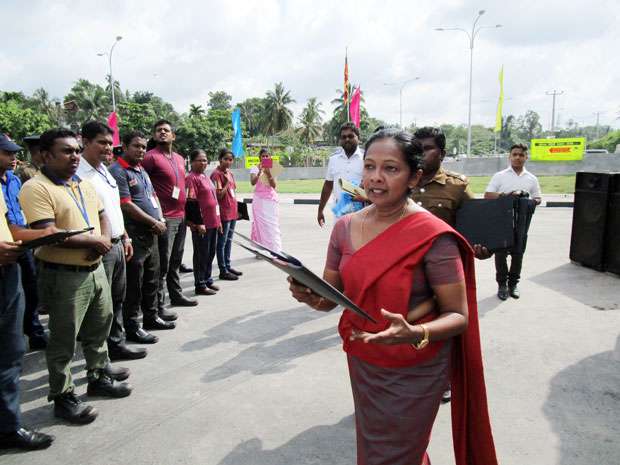
Speaking of dengue management in hospitals in our country she said, “Usually in our country the fatality rate of dengue is very low, last year we had 186 000 dengue patients but 440 deaths. In our country we are managing dengue patients very well. It is up to the standard of other countries such as Singapore and Thailand. Such dengue riddled countries have got together and follow a similar dengue management guideline and treatment techniques. There is no specific drug however to cure dengue yet.”
In her concluding remarks she said, “ In order to efficiently manage the dengue menance we must change the behaviour of the people in our country. We have to inculcate the behaviour of disposing waste. Then only can we substantially reduce dengue in Sri Lanka. To change this behavior and the culture of our people is a major challenge we face. We do many programmes with the education ministry to educate and spread awareness to children of proper waste management practices. We want waste management to become a natural habit. Further, clearing waste should be done on a daily basis and not only when an outbreak occurs. For instance, Some homes are quite vigilant when an outbreak occurs, but afterwards they begin to neglect waste in their homes. Therefore, the key to prevention of the epidemic is through environmental management. Some homes have bird baths, ponds and stagnant water in gutters that are heavily polluted. There must be a mechanisms to maintain them. As a further prevention mechanism chemicals are being used to destroy larvae and fogging is done to kill adult mosquitoes. However, we are trying to use chemicals at a minimum because such chemicals can cause resistance and it can also cause other diseases in people.”
